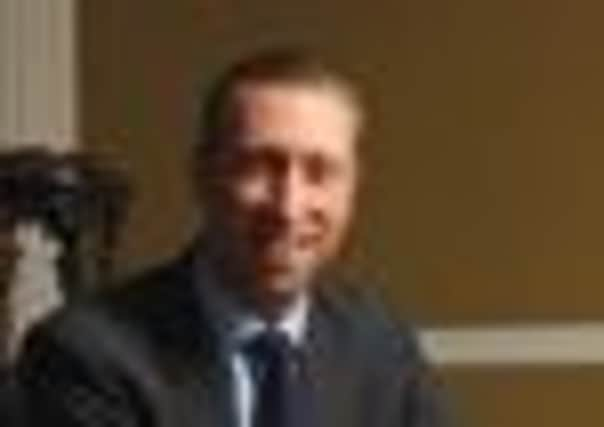Region set to lead the way in global revolution in healthcare


Prime Minister David Cameron has announced plans to use ‘telehealth’ systems to monitor three million patients with chronic illnesses in their home.
As a result, the NHS will save millions of pounds every year, because it means fewer people will have to be admitted to hospital.
Advertisement
Hide AdAdvertisement
Hide AdThe hi-tech systems will allow health checks to be carried out and sent electronically to GPs without the need for patients to make an appointment or visit a clinic.
Announcing the scheme, Mr Cameron said: “Look at our approach to telehealth – getting new technology into patients’ homes so they can be monitored remotely. We’ve trialled it, it’s been a huge success, and now we’re on a drive to roll this out nationwide.”
Jonathan Thorpe, the manager in the Centre for Telehealth at Hull University, said yesterday: “This is a very new industry in which Yorkshire has already achieved a lead.
“We now have the rare opportunity to make Yorkshire a world leader in this crucial developing market. The world (telehealth) market is projected to grow nearly fortyfold over the next 10 years, from $163m worldwide in 2010, to $6.28bn by 2020.”
Advertisement
Hide AdAdvertisement
Hide AdThe York Health Economics Consortium estimates that up to £3,000 a year can be saved per patient using a “virtual” support system.
Kay Phillips, the head of UK business development in the Faculty of Health and Wellbeing at Sheffield Hallam University, said Yorkshire was at the forefront of advances in telehealth and telecare.
Ms Phillips said companies and healthcare professionals in places such as Hull, Barnsley, Huddersfield, Wakefield, Sheffield, Doncaster, Leeds and Keighley were already using telehealth systems.
She added: “Several of the region’s universities, such as Hull University, the University of Sheffield and Sheffield Hallam University, are also very actively involved in research to support the development, implementation and evaluation of telehealth technologies.
Advertisement
Hide AdAdvertisement
Hide Ad“Much of this work is being undertaken in partnership with private sector technology developers and excellent networks have been established to support this activity.”
One of the firms involved in the roll-out of telehealthcare is Tunstall, a Yorkshire company which provides an early-warning system to protect vulnerable people. Worldwide, Tunstall’s products help more than 2.5m elderly people and sufferers from conditions such as dementia and heart disease to live independently. The company’s telehealth systems enable patients to monitor their weight, blood pressure and oxygen levels in their own homes. The results are studied every day by a team of clinicians.
Tunstall, which is based in Whitley Bridge, near Selby, has signed a deal to buy the US-based American Medical Alert Corp. In the UK, more than 80 primary care trusts and clinical commissioning group’s use Tunstall’s systems.
It has 650 staff in the UK, including 400 at Whitley Bridge. Globally, Tunstall employs 1,200 people.
Advertisement
Hide AdAdvertisement
Hide AdSimon Arnold, the company’s managing director, said the turnover figure for 2010 had been “fairly flat” at £150m, although the company had created jobs globally in “the low three figures area” over the last year.
He said the company was part of a consortium chosen to provide a remote telemonitoring service in Northern Ireland, which showed its potential to grow. He added: “We’re still very much at the cutting edge of the new technology.”
Bradford-based Red Embedded also expects to grow and hire more staff on the back of Mr Cameron’s support for telehealth systems.
The firm has developed a tele-health consultation system to help doctors and carers talk to patients in their own homes, reducing the number of patients having to travel to and from hospitals.
Advertisement
Hide AdAdvertisement
Hide AdThe technology, which uses a television-based video telephony system, includes cameras with zoom and pan controls, and connection to a streaming video server providing information clips to patients.
The system is being used by the Airedale NHS Foundation Trust, and so far, it has helped between 50 and 100 patients.
The £3.5m turnover company has 55 staff, including 15 who are involved in the development of telehealth systems.
Bill Hoath, the director of Red Embedded, said the company expected to take on more staff.
He added: “We’re in the right place at the right time.”
Lawyer’s litigation warning
Advertisement
Hide AdAdvertisement
Hide AdA YORKSHIRE lawyer has warned that one unexpected consequence of the growth in telehealthcare could be an increase in litigation.
Andrew Hurst, a partner at Schofield Sweeney, said: “There will clearly be issues as to where the responsibility for accurate monitoring lies between the patient, technology provider and the healthcare provider, which, in the case of inaccurate or defective monitoring, could lead to complicated claims resulting from perceived failures in the monitoring process.” Warren Taylor of law firm Nabarro, added: “The economics are clear. Telehealthcare will reduce the need for face-to-face consultations.”